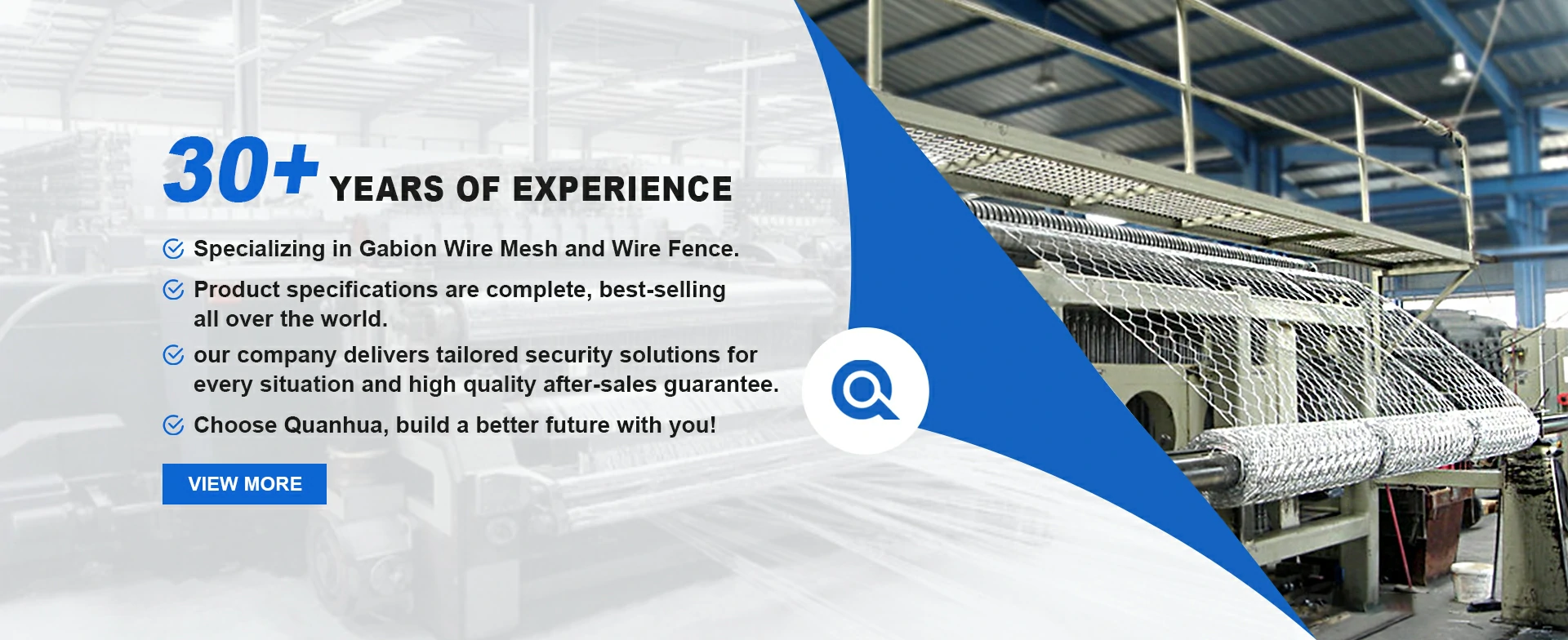Aug . 21, 2024 14:10 Back to list
Exploring the Effects of Rust on Gabion Structures in Manufacturing Processes
The Role of Gabion Rust Factories in Modern Construction
In the realm of modern construction and landscaping, gabions—wire mesh cages filled with stones—have gained significant popularity. They are utilized not only for their functional benefits but also for their aesthetic appeal. Nonetheless, a critical aspect often overlooked in the production and deployment of gabions is their susceptibility to rust and corrosion. This concern has paved the way for specialized factories focused on producing rust-resistant gabion solutions.
Understanding Gabions
Gabions, derived from the Italian word gabbione, meaning big cage, have a long history of use in civil engineering. Traditionally, these structures have been employed for erosion control, slope stabilization, and as retaining walls. Their versatility and cost-effectiveness make them an attractive option for both commercial and residential projects. However, the performance and longevity of gabions can be severely affected by rust, particularly when exposed to harsh environmental conditions.
The Importance of Rust Resistance
Rust, primarily caused by the oxidation of iron and its alloys, poses a significant risk to the structural integrity of gabions. When regular steel wire is used, it can begin to corrode within a few years of exposure to moisture and air, leading to potential safety hazards and increased maintenance costs. To mitigate these concerns, gabion rust factories have emerged, focusing on the production of rust-resistant materials.
Innovative Production Techniques
These specialized factories employ various techniques to enhance the durability of gabions. One of the most common methods is the use of galvanized steel wire. This process involves coating the steel with a layer of zinc, which acts as a barrier against moisture and oxygen. Additionally, some factories offer polymer-coated gabion mesh, which provides even greater resistance to corrosion and environmental wear.
gabion rust factories

Another innovation in gabion manufacturing is the development of stainless steel options. While more expensive, stainless steel gabions offer unparalleled durability and resistance to rust, making them ideal for coastal areas or environments subjected to heavy rainfall and salt exposure.
Environmental Considerations
In recent years, there has been a growing emphasis on sustainability within the production process. Gabion rust factories are increasingly adopting environmentally friendly practices, such as utilizing recycled materials and reducing waste during manufacturing. Furthermore, by choosing rust-resistant gabions, builders and architects are contributing to sustainable construction practices, as these products typically have a longer lifespan, reducing the need for replacements.
Market Demand and Future Trends
As awareness about the benefits of rust-resistant gabions increases, the demand for these specialized products is expected to rise. Advancements in manufacturing technologies, along with a focus on sustainability, are likely to shape the future of gabion production. Factories that invest in research and development to create more effective rust-resistant solutions will find themselves at the forefront of the construction materials market.
Conclusion
Gabion rust factories are playing a crucial role in enhancing the longevity and performance of gabions in modern construction. By producing rust-resistant materials through innovative techniques and sustainable practices, these factories are not only protecting the integrity of gabion structures but also contributing to more sustainable building practices. As the construction industry continues to evolve, the significance of rust resistance in gabions will remain a vital consideration, ensuring that these adaptable structures can be utilized effectively and safely for years to come.
-
Visualizing Gabion 3D Integration in Urban Landscapes with Rendering
NewsJul.23,2025
-
The Design and Sustainability of Gabion Wire Mesh Panels
NewsJul.23,2025
-
The Acoustic Performance of Gabion Sound Barriers in Urban Environments
NewsJul.23,2025
-
Mastering the Installation of Galvanized Gabion Structures
NewsJul.23,2025
-
Gabion Boxes: Pioneering Sustainable Infrastructure Across the Globe
NewsJul.23,2025
-
Custom PVC Coated Gabion Boxes for Aesthetic Excellence
NewsJul.23,2025
-
Installation Tips for Gabion Wire Baskets in Erosion Control Projects
NewsJul.21,2025






